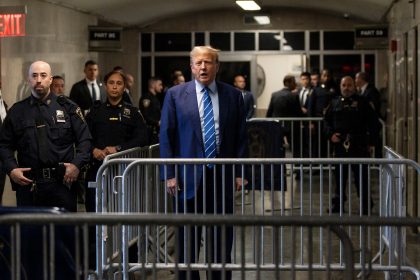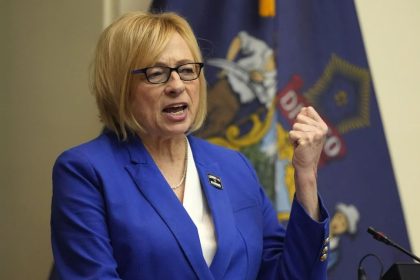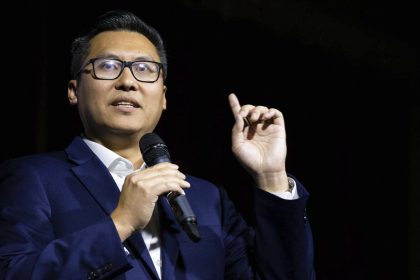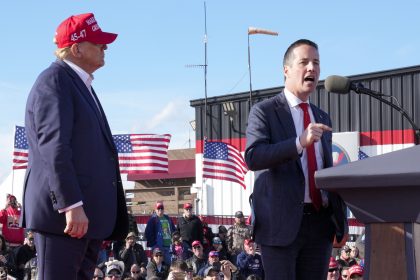Strong Early Turnout Sets Stage for North Carolina Primaries

RALEIGH, N.C. — Almost 370,000 ballots have been cast ahead of North Carolina’s May 17 primaries that will pit candidates against each other for the House, Senate, state Supreme Court and appellate courts.
As of May 12, a total of 369,724 absentee ballots were cast out of the state’s over 7.2 million registered voters for a 5.08% turnout before election night, according to the North Carolina State Board of Elections. Voters will have until May 14 to vote early, and the polls will close at 3 p.m. local time.
The top issues on voters’ minds are Medicaid expansion, inflation, marijuana legalization, abortion access, constitutional limits on older candidates and public education, according to a survey of registered voters in North Carolina conducted by Meredith College. North Carolinians are overall more dissatisfied with the direction of the country than they are with the direction of their state, although their net satisfaction trends downwards in both cases.
Incumbent GOP U.S. Sen. Richard Burr announced his term, which expires this year, would be his last after winning reelection in 2016. A whopping 14 candidates will appear on the Republican ballot to replace Burr.
Among them, Rep. Ted Budd, former Gov. Pat McCrory and former Rep. Mark Walker are favorites among voters, according to polling data gathered by The Hill, Emerson College and the Trafalgar Group. Budd leads all polling, and Sabato’s Crystal Ball expects the contest to slightly favor the Republican primary winner in the general election.
Meanwhile, former state Supreme Court Justice Cheri Beasley remains the clear favorite among the 11 Democratic candidates on the ballot. Polling conducted by SurveyUSA in April showed that 37% of voters had Beasley as their preferred candidate while all others were in the single digits.
In a pair of projected head-to-head matchups, Emerson polling indicates Beasley holds a five percentage point lead over McCrory but trails Budd by seven percentage points. Budd received the endorsement of former President Donald Trump, while former New Jersey Gov. Chris Christie and current Maryland Gov. Larry Hogan endorsed McCrory.
North Carolina’s U.S. House primaries will determine who will be a potential candidate to replace retiring incumbent Democratic Rep. David Price in November. The winner will become their respective party’s candidate to represent the state’s 4th Congressional District.
The two candidates on the Republican ballot in that race are attorney Robert Thomas and nurse Courtney Geels. Thomas previously obtained his party’s nomination to represent the district in 2020, while the race marks Geels’ first foray into politics.
In contrast, eight candidates appear on the Democratic ballot in the contest. Polling data indicates state Sen. Valerie Foushee, Durham County Commissioner Nida Allam and former American Idol contestant Clay Aiken are the leading contenders in that race.
Former North Carolina State University football player Bo Hines leads the pack of Republican candidates vying for Budd’s current office in the 13th Congressional District race. Hines, who was endorsed by Trump, is one of eight candidates on the ballot and is trailed closely by family attorney Kelly Daughtry.
The terms of two state Supreme Court justices expire in 2022 and the races to replace them could have significant ramifications for the political makeup of the court as Democrats hold a one-seat majority. Retiring Justice Robin Hudson’s position will be replaced in the general election by either Republican Richard Dietz or Democrat Lucy Inman.
Incumbent Democratic Justice Sam Ervin will face the winner of the three-way Republican primary for the seat. That race features District Court of Appeals Judge April Wood, Administrative Office of the Courts General Counsel Trey Allen and Associate Attorney Victoria Prince.
Registered voters can find sample ballots and polling locations on the North Carolina State Board of Elections website.
Reece can be reached at [email protected] and @ReeceNations























